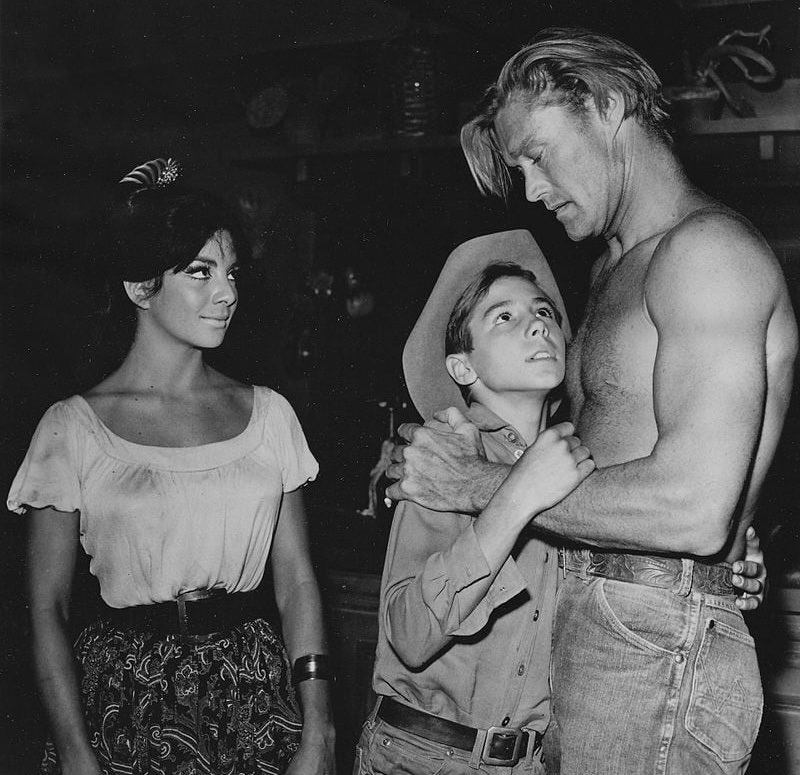In the dusty town of North Fork, New Mexico Territory, The Rifleman rode high in the hearts of American families—not just for its action-packed shootouts and moral clarity, but for the unshakable bond between Lucas McCain and his son, Mark.
For many, this wasn’t just a TV show. It was a half-hour sanctuary every week, a place where justice always triumphed and love between a father and son lit the screen with quiet intensity. Lucas, played by Chuck Connors, wasn’t just a crack shot with his modified Winchester rifle; he was a widowed father, navigating the wild frontier with tenderness, strength, and unrelenting integrity. Mark, portrayed by Johnny Crawford, was the wide-eyed, loyal son who challenged his father, learned from him, and admired him deeply.
But what viewers didn’t see in those black-and-white frames were the little real-life moments that made the bond even more authentic. Chuck Connors, an ex-pro athlete, often gave Johnny impromptu baseball lessons between takes. One time, after a long day of filming, Connors carried Crawford—then only 12 years old—on his shoulders back to the dressing room because the boy had fallen asleep between scenes. The paternal affection didn’t end with the cameras; it was real.
Yet, The Rifleman wasn’t perfect. Die-hard fans know the rifle sometimes “jammed” mysteriously, or that the town’s population sign changed from episode to episode. Extras occasionally appeared in different roles, and historical facts blurred under dramatic flair. But those imperfections never dulled the emotional resonance. Who cares if a 19th-century character used a 20th-century phrase or a modern object slipped onto the set? What mattered was that each episode delivered something sorely missed in much of today’s TV—heartfelt stories rooted in honor, forgiveness, and love.
Even now, 60 years later, The Rifleman teaches us that strength doesn’t come from a gun, but from the way a father kneels beside his son to explain right from wrong. That’s a lesson worth revisiting, in any era.
